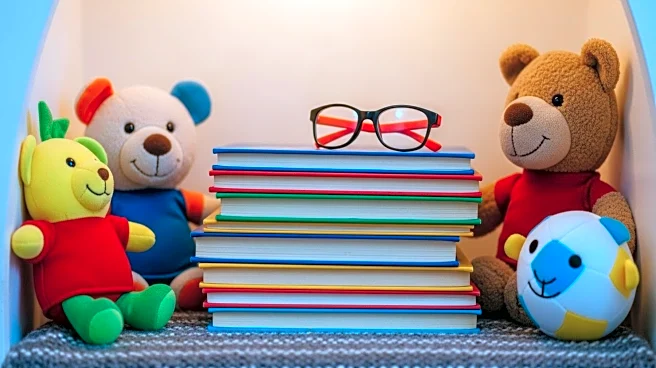What's Happening?
Recent data from the National Assessment of Educational Progress indicates a decline in fourth-grade reading scores, prompting educators to explore new strategies for literacy improvement. A key approach involves strengthening partnerships between schools and families. By equipping families with tools and guidance, literacy development can be accelerated. Schools are encouraged to communicate effectively with families, demystifying literacy elements and providing accessible resources like digital platforms and printable activity sheets. This collaboration aims to create a culture where reading is valued both at home and in school, enhancing children's reading proficiency.
Why It's Important?
The decline in reading scores highlights the need for innovative approaches to literacy education. Strengthening school-family partnerships can bridge the gap between classroom learning and home support, fostering an environment conducive to literacy development. This approach not only addresses achievement gaps but also promotes lifelong reading habits. By involving families in the literacy process, children can benefit from consistent reinforcement of reading skills, ultimately leading to improved educational outcomes and greater confidence in reading.
What's Next?
Schools are expected to continue developing strategies to involve families in literacy education. This includes organizing family literacy nights, providing newsletters with reading activities, and utilizing digital platforms for at-home learning. Educators will likely seek feedback from families to tailor instruction and improve literacy programs. As these partnerships strengthen, schools may observe positive changes in reading scores and overall student engagement.










